
In life, we all face challenges that test our strength and resilience. Whether it’s a personal setback, a professional obstacle, or a global crisis, our ability to bounce back and overcome adversity is crucial. Building inner strength is not a one-time task but an ongoing process that requires cultivating certain qualities. The 5 C’s of resilience – challenge, control, character, competence, and contribution – provide a roadmap for developing the inner strength needed to navigate life’s ups and downs.
Challenge is an essential part of resilience building. Embracing challenges allows us to grow and develop our skills. It’s through facing and overcoming challenges that we discover our true potential and learn valuable life lessons. Rather than avoiding challenges, resilient individuals confront them head-on, viewing them as opportunities for growth and self-improvement.
Control is another key aspect of resilience. While we may not have control over external circumstances, we have control over our reactions and attitudes. Resilient individuals focus on what they can control, such as their thoughts, emotions, and actions. By taking ownership of their responses, they empower themselves to navigate challenges with grace and determination.
Character plays a vital role in resilience building. It encompasses qualities such as perseverance, integrity, and adaptability. Resilient individuals have a strong sense of self and values, which guide them through difficult times. They remain true to themselves and their principles, even when faced with adversity. This unwavering character serves as a foundation for resilience and helps individuals stay grounded in the face of challenges.
Competence refers to the skills and abilities needed to overcome challenges. Resilient individuals continuously strive to improve their competence in various areas of life. They seek knowledge, develop new skills, and adapt to changing circumstances. By enhancing their competence, they become better equipped to handle challenges and find effective solutions.
Contribution is the final piece of the resilience puzzle. Resilient individuals understand the importance of connecting with others and making a positive impact. They actively contribute to their communities, whether through volunteering, mentoring, or supporting others. By focusing on the needs of others, they gain a sense of purpose and belonging, which strengthens their resilience.
Building inner strength and overcoming challenges is not an easy task, but by embracing the 5 C’s of resilience – challenge, control, character, competence, and contribution – we can develop the resilience needed to thrive in the face of adversity. It’s through cultivating these qualities that we build our confidence, hone our coping skills, and emerge stronger than ever before.
Understanding the 5 C’s of Resilience
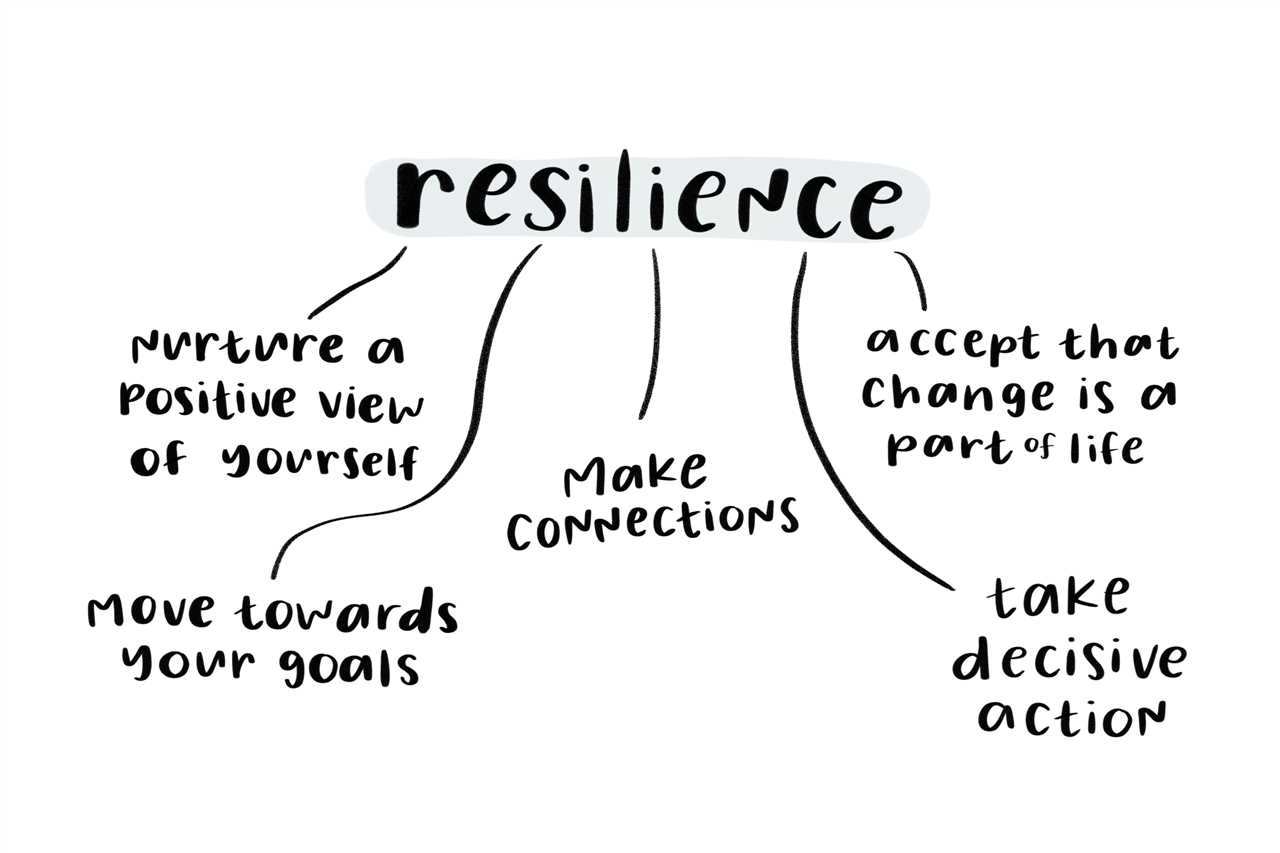
Resilience is the ability to bounce back from adversity and overcome challenges. It is a quality that can be developed and strengthened through the 5 C’s: character, coping, confidence, contribution, and control.
Character: Building resilience starts with developing strong character traits such as perseverance, determination, and optimism. These qualities help individuals face difficult situations with resilience and courage.
Coping: Resilient individuals have effective coping strategies to deal with stress and adversity. They are able to adapt to change, manage their emotions, and find healthy ways to cope with challenges.
Confidence: Resilience is also built on a foundation of self-confidence. Believing in oneself and one’s abilities is crucial for overcoming obstacles and bouncing back from setbacks.
Contribution: Resilience is not just about individual strength, but also about making a positive contribution to others and the community. Helping others and being part of something bigger than oneself can help build resilience.
Control: Resilient individuals understand that there are certain things they can control and others that are beyond their control. They focus their energy on what they can control and let go of what they cannot, allowing them to maintain a sense of power and agency in challenging situations.
By developing these 5 C’s – character, coping, confidence, contribution, and control – individuals can build inner strength and resilience, enabling them to overcome challenges and thrive in the face of adversity.
Resilience: What It Means and Why It Matters
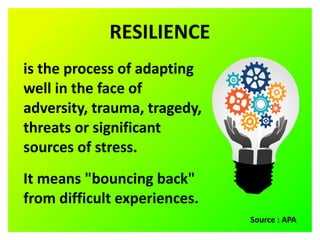
Resilience is the ability to cope with and bounce back from difficult situations and challenges. It is about having control over one’s emotions and actions, and being able to adapt and navigate through adversity. Resilience is not about avoiding or ignoring problems, but rather facing them head-on with confidence and determination.
There are several key components to building resilience:
- Coping: Resilient individuals have effective coping mechanisms that help them deal with stress and adversity. They are able to regulate their emotions and find healthy ways to manage their feelings.
- Control: Resilience is also about recognizing what is within your control and what is not. It is about focusing on what you can change and letting go of things that are beyond your control.
- Competence: Building resilience involves developing a sense of competence and self-efficacy. It is about believing in your abilities and having confidence in your skills to overcome challenges.
- Contribution: Resilient individuals often find meaning and purpose in helping others. They understand the importance of making a positive contribution to their communities and the world.
- Connection: Building strong social connections and support networks is crucial for resilience. Having people you can turn to for support and encouragement can greatly enhance your ability to bounce back from difficult times.
- Commitment: Resilience requires a commitment to personal growth and development. It is about being willing to learn from your experiences, adapt to change, and continuously strive for improvement.
- Confidence: Resilient individuals have a strong sense of self-confidence and belief in their own abilities. They trust themselves to handle challenges and believe that they can overcome any obstacles that come their way.
- Character: Resilience is also about developing strong character traits, such as perseverance, determination, and optimism. It is about having a positive mindset and a strong sense of purpose.
Resilience is an important quality to cultivate, as it can help us navigate through life’s ups and downs with greater ease and grace. By building resilience, we can develop inner strength and overcome challenges more effectively, ultimately leading to a more fulfilling and successful life.
The 5 C’s of Resilience

Resilience is the ability to bounce back from challenges and setbacks, and it is a skill that can be developed and strengthened. The 5 C’s of resilience are confidence, competence, character, commitment, and control. These qualities are essential for building inner strength and overcoming obstacles.
| Confidence | Believing in yourself and your abilities is crucial for resilience. Having confidence allows you to face challenges head-on and trust in your own capabilities to overcome them. |
|---|---|
| Competence | Developing skills and knowledge in areas relevant to your challenges is important for resilience. Being competent gives you the tools and resources to navigate difficult situations and find solutions. |
| Character | Having a strong moral compass and integrity is essential for resilience. Building a resilient character means staying true to your values and principles, even in the face of adversity. |
| Commitment | Being committed to your goals and aspirations is key for resilience. Having a strong sense of commitment keeps you motivated and focused, even when faced with obstacles and setbacks. |
| Control | Understanding what you can control and what you cannot is crucial for resilience. Focusing on what you can control allows you to take action and make positive changes, while letting go of what is beyond your control. |
Building resilience involves developing coping strategies and learning how to effectively deal with challenges. It also involves recognizing the importance of contributing to others and finding meaning and purpose in your life.
By cultivating confidence, competence, character, commitment, and control, you can become more resilient and better equipped to face the challenges that life throws your way.
Confidence
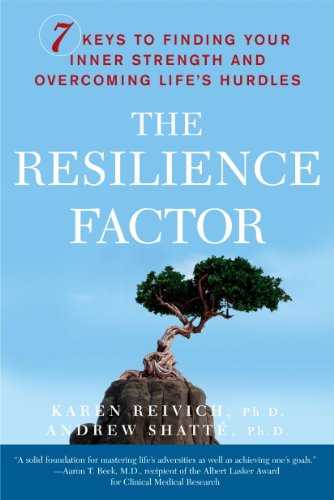
Confidence plays a crucial role in building resilience and overcoming challenges. It is the belief in one’s abilities and the assurance that one can handle difficult situations. Developing confidence involves several key components:
- Competence: Building confidence starts with developing competence in various areas of life. Acquiring skills and knowledge in different domains allows individuals to feel capable and prepared to face challenges.
- Character: Confidence is closely tied to one’s character. Having a strong sense of integrity, honesty, and resilience contributes to self-assurance and belief in one’s abilities.
- Commitment: Staying committed to personal goals and values strengthens confidence. When individuals are dedicated to their aspirations and work hard to achieve them, they build a sense of self-assurance.
- Coping: Confidence comes from the ability to cope effectively with stress and adversity. Developing healthy coping mechanisms, such as problem-solving skills and emotional regulation, enhances confidence in one’s ability to handle challenges.
- Connection: Building and maintaining supportive relationships fosters confidence. Having a network of friends, family, and mentors who provide encouragement and support can boost self-belief.
- Control: Confidence is reinforced by having a sense of control over one’s life. Taking initiative, setting goals, and making decisions empowers individuals and enhances their belief in their own abilities.
By cultivating these aspects, individuals can develop and strengthen their confidence, enabling them to face challenges with resilience and inner strength.
Competence
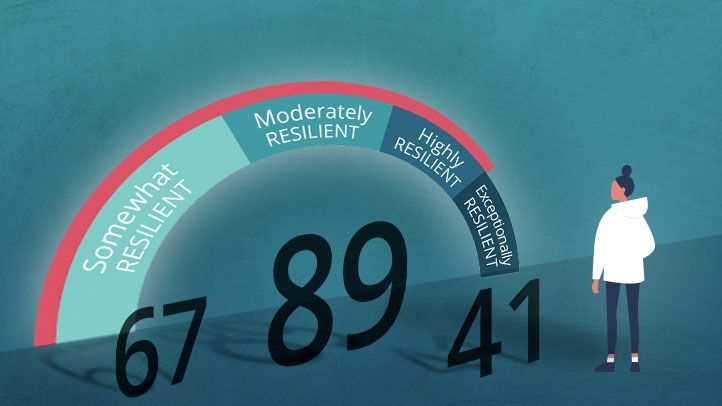
Competence is an essential aspect of building resilience. It refers to the ability to cope with and overcome challenges effectively. When faced with adversity, individuals with competence possess the necessary skills, knowledge, and resources to navigate through difficult situations.
Building competence involves developing a range of skills and abilities that contribute to resilience. This includes developing problem-solving skills, critical thinking abilities, and emotional intelligence. By acquiring these competencies, individuals can better understand and manage their emotions, thoughts, and behaviors when faced with challenges.
Competence also involves recognizing the importance of contribution and having a sense of purpose. It means understanding that one’s actions and efforts can make a difference and have a positive impact on oneself and others. This sense of contribution builds confidence and strengthens character.
Furthermore, competence is closely linked to commitment and control. Individuals who are competent understand the importance of committing to their goals and taking control of their actions. They have a strong sense of self-efficacy and believe in their ability to overcome challenges and achieve success.
In summary, competence is a crucial component of resilience. It involves developing the necessary skills, knowledge, and resources to cope with challenges effectively. By building competence, individuals can enhance their confidence, character, commitment, and sense of control, enabling them to overcome obstacles and thrive in the face of adversity.
Connection
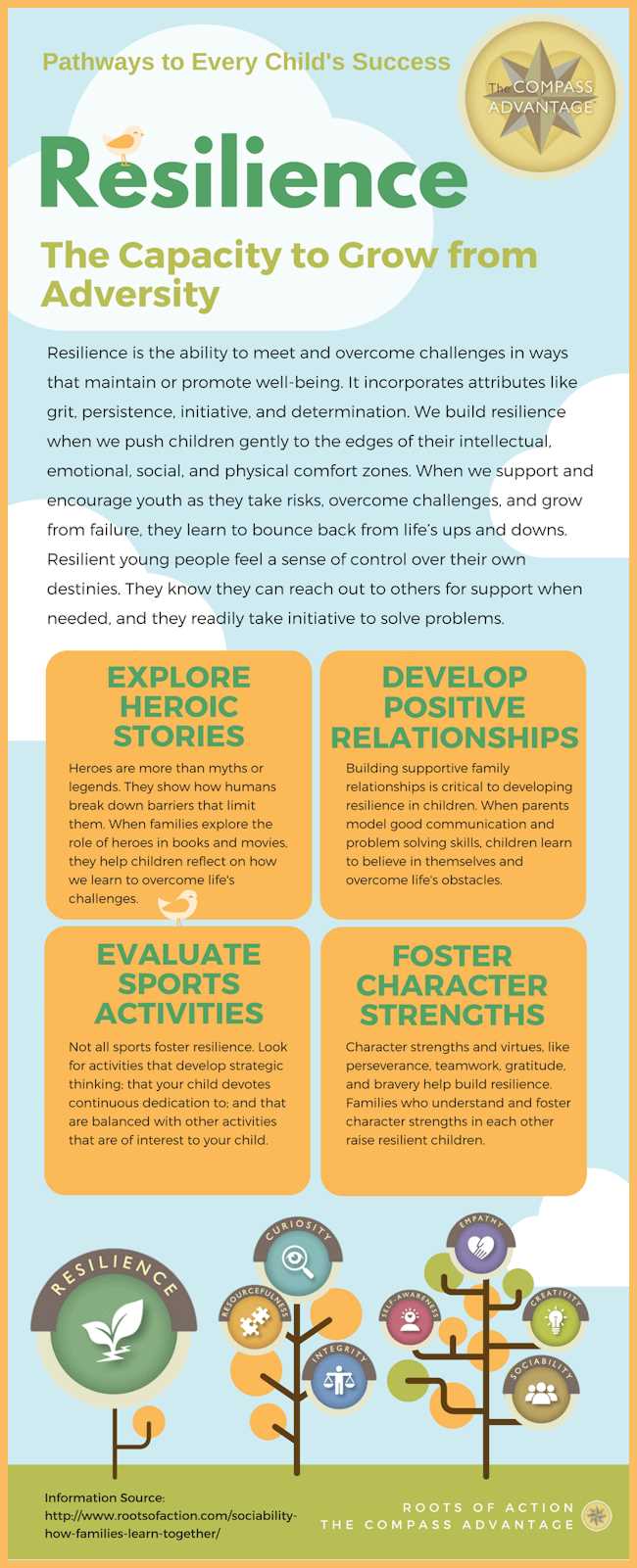
Connection is a vital aspect of building inner strength and overcoming challenges. It involves establishing meaningful relationships and fostering a sense of belonging. When faced with adversity, having strong connections with others can provide a support system that helps us navigate through difficult times.
Building connections involves reaching out to others and actively engaging in social interactions. It is about creating a network of individuals who can offer support, guidance, and encouragement. By surrounding ourselves with positive and like-minded people, we can gain a sense of control and competence in facing challenges.
Connection also plays a crucial role in building confidence and developing coping skills. When we have a strong sense of connection with others, we feel more comfortable seeking help and sharing our struggles. This allows us to learn from others’ experiences and develop effective strategies for coping with challenges.
Commitment to maintaining connections is essential for resilience building. It requires dedication and effort to nurture relationships and stay connected with others. By making a commitment to staying connected, we can build a strong support system that will help us face any challenge that comes our way.
Character is also influenced by our connections. Surrounding ourselves with individuals who possess strong character traits can inspire us to develop similar qualities. By connecting with people who have faced and overcome challenges, we can learn from their experiences and develop resilience.
In summary, connection is a critical component of resilience building. It provides a support system, helps develop coping skills, and influences our character. By actively seeking and maintaining connections, we can strengthen our inner strength and overcome any challenge that comes our way.
Character
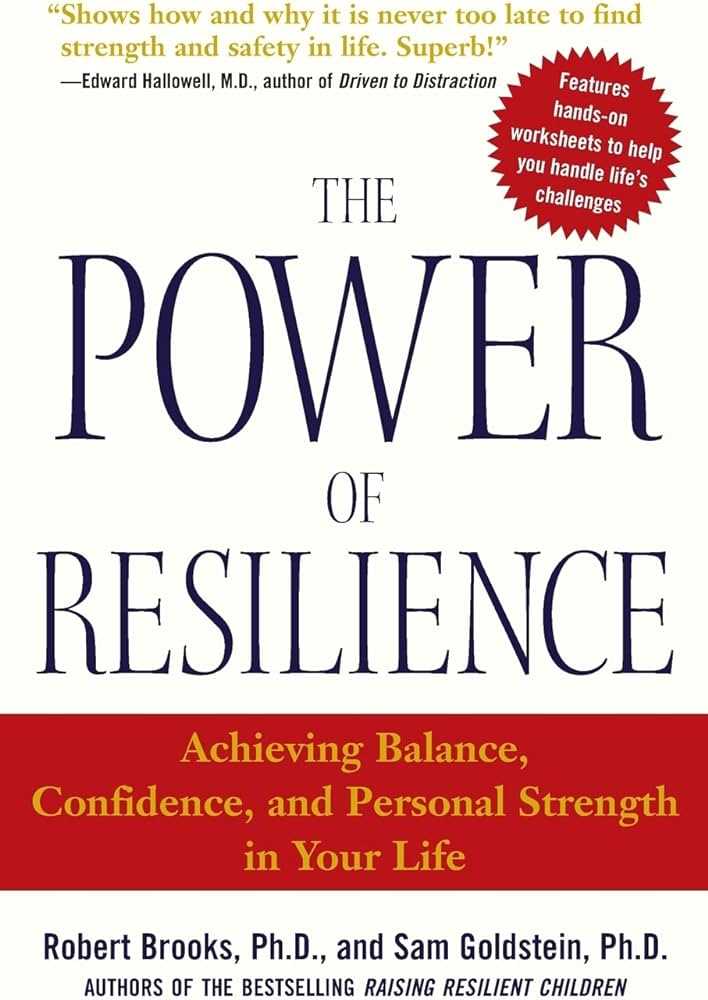
Character is an essential aspect of building resilience and overcoming challenges. It encompasses a combination of coping skills, commitment, confidence, control, competence, and contribution.
When faced with a challenge, individuals with strong character are able to cope effectively and find ways to overcome obstacles. They possess the determination and perseverance to continue pushing forward, even when faced with adversity.
Commitment is another key component of character. It involves being dedicated and loyal to one’s goals and values, even when the going gets tough. Those with strong character are willing to put in the necessary effort and make sacrifices to achieve their objectives.
Confidence plays a vital role in building resilience. Individuals with strong character believe in their abilities and have faith in their capacity to overcome challenges. This self-assurance allows them to approach difficulties with a positive mindset and find creative solutions.
Control is an important aspect of character. Resilient individuals understand that while they may not have control over external circumstances, they can control their reactions and attitudes. They take responsibility for their actions and choices, which empowers them to navigate challenges more effectively.
Competence is another characteristic of strong character. Resilient individuals continuously strive to improve their skills and knowledge, enabling them to adapt and thrive in the face of adversity. They understand the importance of continuous learning and development.
Finally, character involves making a positive contribution to oneself and others. Resilient individuals understand the value of giving back and helping others. They find fulfillment in supporting and uplifting those around them, which further strengthens their own resilience.
In conclusion, character plays a crucial role in building inner strength and overcoming challenges. It encompasses coping skills, commitment, confidence, control, competence, and contribution. Developing and nurturing these aspects of character can greatly enhance one’s resilience and ability to thrive in the face of adversity.
Control
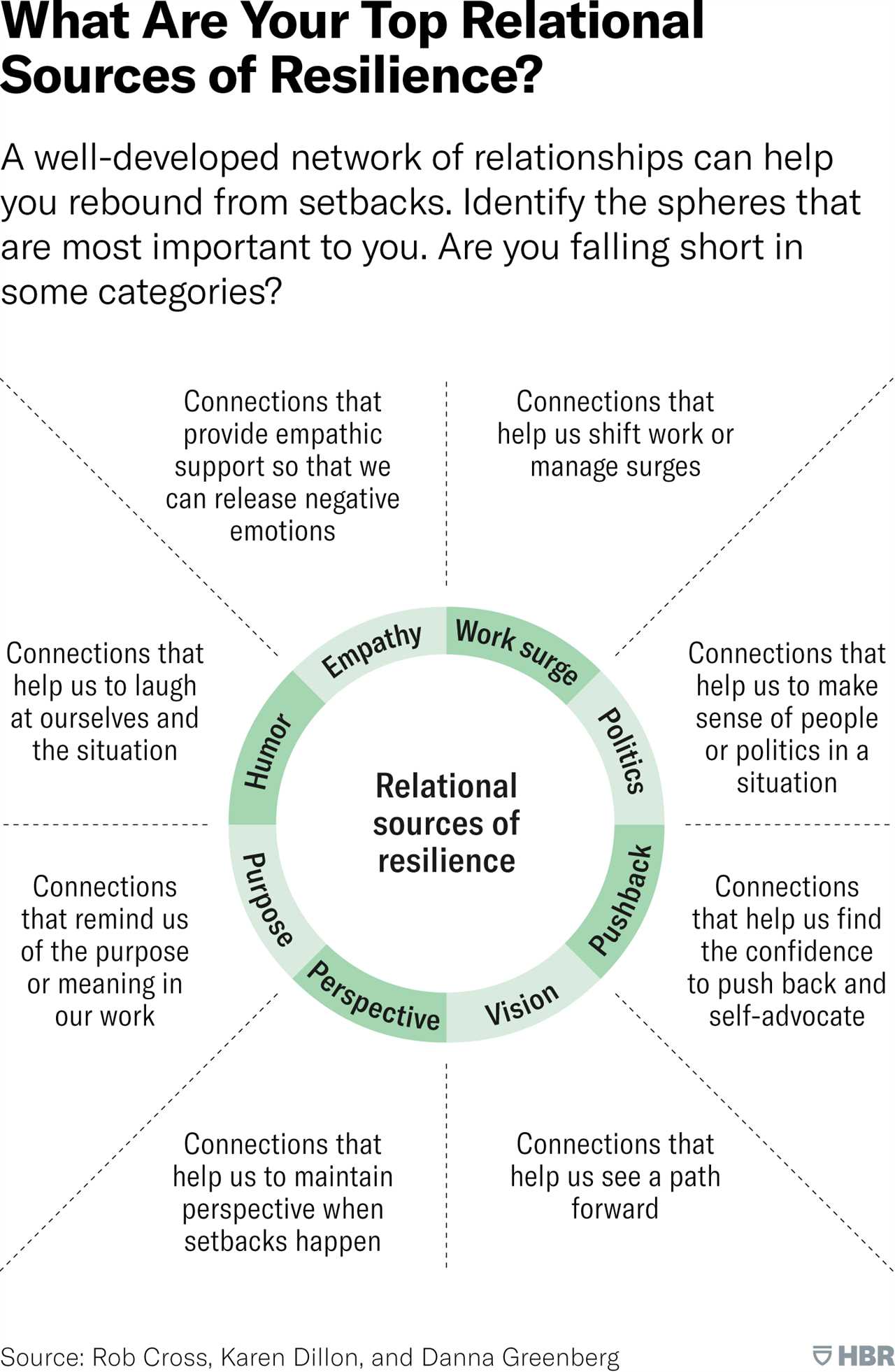
Control is an essential aspect of building resilience and overcoming challenges. It involves taking charge of one’s own actions, thoughts, and emotions in order to navigate difficult situations and find solutions. Developing a sense of control can contribute to an individual’s overall well-being and ability to bounce back from adversity.
When faced with challenges, it can be easy to feel overwhelmed and powerless. However, by focusing on what is within our control, we can regain a sense of agency and take proactive steps towards finding solutions. This includes recognizing the aspects of a situation that we have the power to change or influence, and taking action accordingly.
Building resilience through control also involves developing coping strategies and skills to effectively manage stress and adversity. This may include practicing mindfulness and self-care, seeking support from others, and finding healthy ways to express and process emotions. By taking control of our coping mechanisms, we can better navigate challenging situations and maintain our well-being.
Additionally, having a sense of control can boost confidence and self-esteem. When we believe in our ability to handle challenges and make positive changes, we are more likely to approach difficult situations with determination and resilience. This confidence can also contribute to the development of competence and character, as we gain experience and learn from our successes and failures.
Furthermore, control is closely linked to commitment and connection. When we have a sense of control, we are more likely to feel committed to our goals and take action towards achieving them. This commitment can foster a sense of purpose and motivation, helping us overcome obstacles and persevere in the face of adversity.
In conclusion, control plays a crucial role in building inner strength and resilience. By taking control of our actions, thoughts, and emotions, we can navigate challenges more effectively and find solutions. Developing a sense of control contributes to our overall well-being and helps us overcome obstacles with confidence, commitment, competence, and connection.
Building Inner Strength
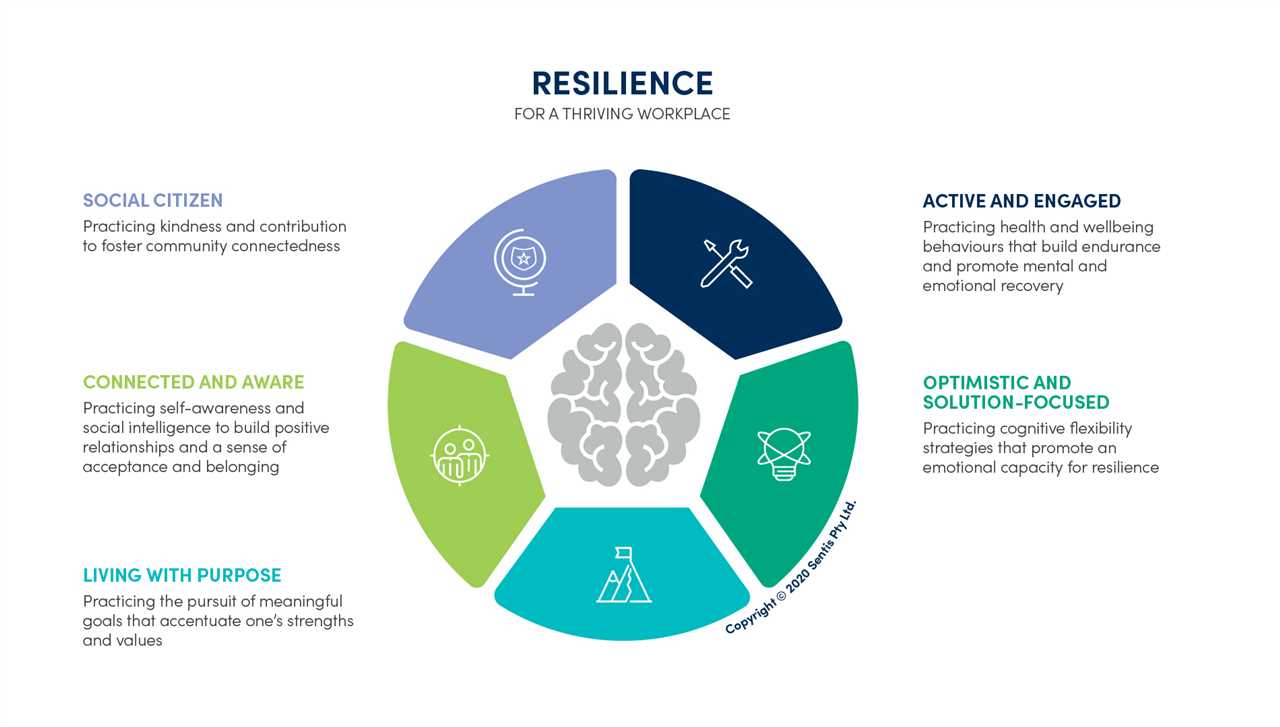
Building inner strength is essential for overcoming challenges and developing resilience. It involves developing and nurturing qualities such as character, confidence, competence, and commitment. Inner strength is not something that can be acquired overnight; it requires effort, self-reflection, and a willingness to grow. Here are some key elements to consider when building inner strength:
Character: Developing a strong character is the foundation of inner strength. It involves cultivating qualities such as honesty, integrity, and resilience. Building character requires making ethical choices and staying true to your values, even when faced with difficult situations.
Confidence: Confidence is an important aspect of inner strength. It involves believing in yourself and your abilities, even in the face of challenges. Building confidence requires recognizing your strengths and accomplishments, and learning from your mistakes.
Competence: Developing competence in various areas of your life can contribute to inner strength. This involves acquiring knowledge, skills, and abilities that are relevant to your goals and aspirations. Building competence requires continuous learning and a commitment to personal growth.
Commitment: Building inner strength requires a commitment to yourself and your goals. It involves setting clear intentions and taking consistent action towards achieving them. Building commitment requires perseverance and staying focused, even when faced with obstacles or setbacks.
Coping: Developing effective coping strategies is crucial for building inner strength. It involves learning how to manage stress, overcome adversity, and bounce back from failures or disappointments. Building coping skills requires self-awareness, self-care, and seeking support when needed.
Connection: Building strong connections with others can contribute to inner strength. It involves cultivating meaningful relationships and a sense of belonging. Building connection requires effective communication, empathy, and a willingness to support and be supported by others.
In conclusion, building inner strength is a lifelong journey that involves developing and nurturing qualities such as character, confidence, competence, and commitment. It requires effort, self-reflection, and a willingness to grow. By focusing on these key elements, you can cultivate inner strength and overcome challenges with resilience.

I am Patrina de Silva, a psychologist and mental health blogger in Sri Lanka. After obtaining psychology degrees from the University of Colombo and Monash University, I returned home to work as a counselor while also starting the popular blog “Pressy but Happy” to provide advice on psychological issues. Over the past decade, my empathetic articles have made my blog a leading mental health resource in the country. In addition to writing, I maintain a private therapy practice, frequently volunteer counseling time, and conduct seminars, driven by my passion for destigmatizing mental illness and educating the public on the mind-body connection. I strive to be an influential voice in my field through my compassionate approach.
